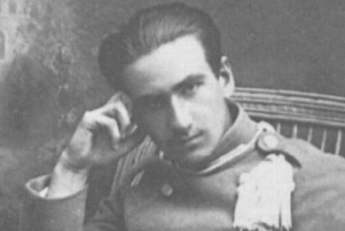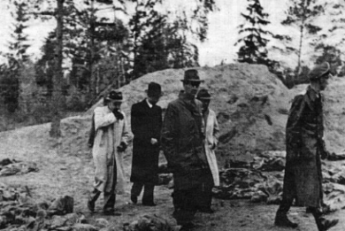
Józef Mackiewicz on emigration
Józef Mackiewicz is one of the most famous emigre writers, a man whose books often touched on taboo topics. He was not afraid to make controversial judgments and did not spare words of criticism towards the emigration community.
From January 1945, he began his life in exile. He went to Italy, after what he moved to London in 1947, where he lived until 1955. Then he moved with his wife Barbara Toporska to Munich, where he spent the rest of his life.
After the war, Józef Mackiewicz met his brother Stanisław “Cat” in London, but broke off relations with him after the latter, unable to cope on the London pavement, decided to first accept a thousand pounds from an intelligence officer of the People’s Republic of Poland, and then returned in 1956 to People’s Poland. Contact between Stanisław and Józef ceased to exist.
In the case of Józef Mackiewicz, emigration to the West was the only option to protect himself from terror, the red plague, which the author of ‘Left free’ sincerely hated. What was life like in exile? First of all, freedom, which Mackiewicz constantly uses, publishing his texts in various journals, in which, among other things, he shows his attitude towards emigration.
Mackiewicz noticed more and more often that the emigration began to bury its head in the sand. As an example, we can cite some of his statements from the “Pastoral Letter” published on March 23, 1969 in the London weekly “Wiadomości”. He points out that emigrants, instead of an idea or ambition, look at “our own houses, that we spend our holidays in Spain, that we have a higher standard of living than in the People’s Republic of Poland”, “Sometimes they look at benefits of a different kind. For example, those that are achieved from conformism to the official line of the Mighty of this World”. “When it comes to emigration, fatigue and discouragement play a certain role,” he wrote.
After the war, Józef Mackiewicz, known for his uncompromising anti-communist attitude, spent his entire life in exile. He wrote and published a lot in the emigration press. He did not return to People’s Poland like his brother. For Mackiewicz, emigration was inevitable – it provided shelter from communism.
Bibliography:
Article by Józef Mackiewicz entitled “Pastoral letter” published in the weekly “Wiadomości”, March 23, 1969; AAN, Files of Zofia and Stefan Korboński, reference number 347.
“The News” January 17, 1971, London, Year 26, No. 3 (1294)






